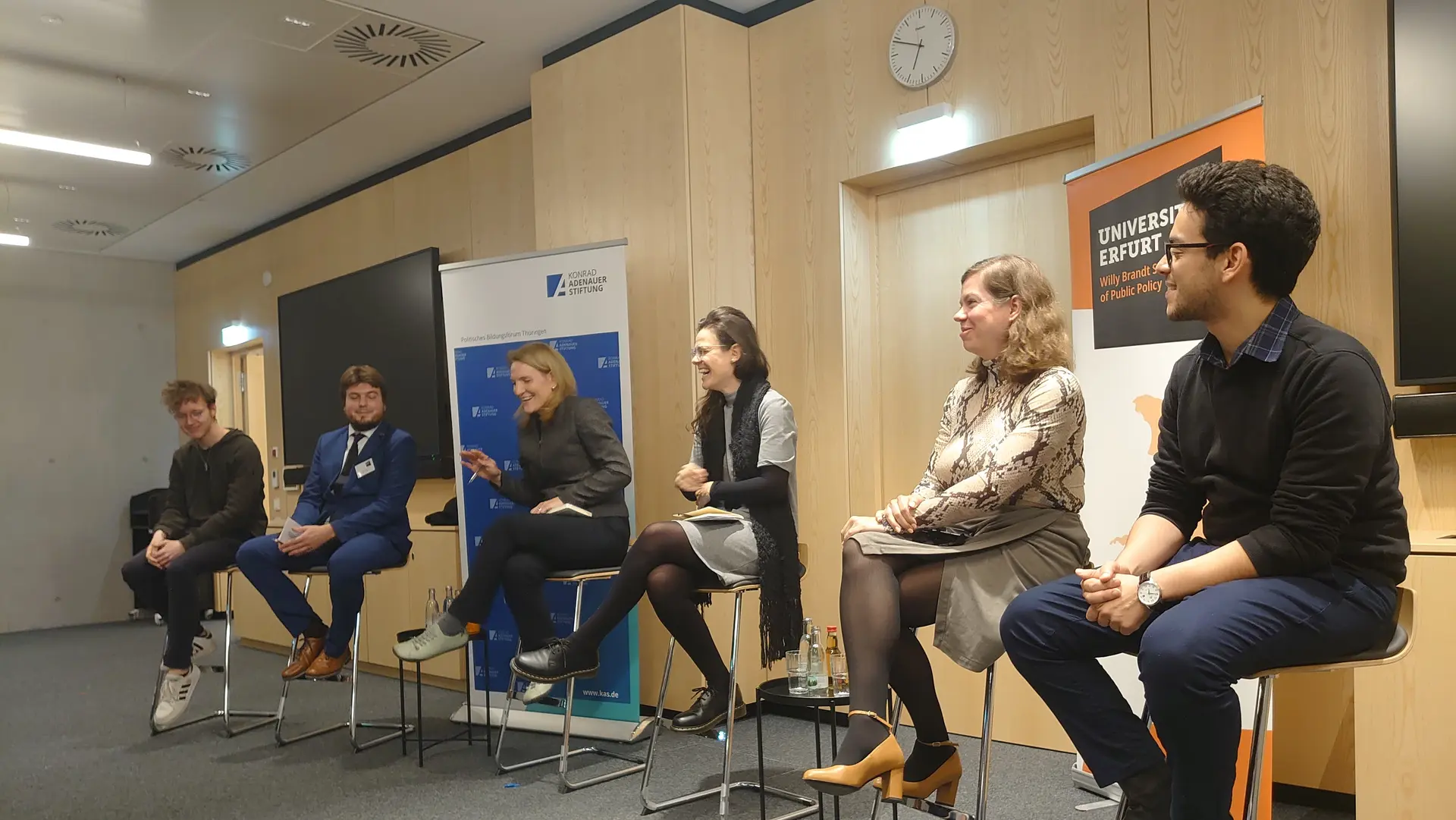Due to various political, social, and geopolitical conflicts, society is being driven further and further apart and people are becoming more entrenched in their positions. During the Erfurt Transatlantic Dialogue: Division and Polarization panel, the panelists reported from different cultures and political situations, and it was interesting to recognize overarching patterns. The panelists discussed the importance of media literacy and stopping the spread of false information.
Polarization is primarily driven by information that is not always correct. So-called "fake news" spreads rapidly; in social environments and especially on the internet. People who use the internet news platforms and social media platforms automatically provide a target for spreading false information. The dissemination of fake news is often used to generate more profit, for example by magazines that advertise with a false headline or in politics to spread rumors or to profit from them themselves. The panelists emphasized the importance of media literacy for everyone from kindergarten aged children to 80-year-old adults.
Hateful content can be found almost anywhere on the internet; in chosen environments, but also in seemingly harmless YouTube videos or online games. Anyone can comment and spread information that is factually incorrect. Research and development of media literacy training is slower than the spread of misinformation. In Brazil, for example, online telegram channels are not easy to find and access for fact checkers, and even if content is banned, it is hard to know how many people have seen it before it is taken down.
However, a distinction must be made between disinformation and misinformation. The former is false information that is intentionally spread to achieve a certain goal. People post disinformation knowing it is false, but it suits their agenda. This often involves the use of "trolls", i.e. people who spread such information for money. Misinformation, on the other hand, is false information that is spread without the person knowing better at the time.
In both cases, however, the information is also disseminated via algorithms. These do not check the content but simply push popular videos or photos. It often takes up to 24 hours for the content to be checked and deleted; during this time, the content can be shared and saved thousands of times or made inaccessible to the platforms.
The panelists emphasized that people can protect themselves so they are not so susceptible to fake news. There is free research work from, for example, the "Correctiv" editorial team, which conscientiously researches current topics, or other courses and offers where people are trained to recognize fake news yourself. Otherwise, it helps to actively question content as a private individual and check the source. For every thesis, there should always be several trustworthy sources to back it up. There are even tools for parents to help them recognize what kids are seeing and dealing with on the internet. Prevention is easier than deradicalization, so helping kids recognize mis- and dis- information early is key. Evidence has shown that face to face dialogue and cooperative projects can build trust and help people form the ability to agree and disagree. This can be key to combating fake news. It is also important to meet people where they are at and try to give quick media literacy trainings in places where people must wait anyway, such as trains and gas stations.
According to the panelists, actively stopping false information is an opportunity to alleviate division and polarization, as well as tensions between opinion groups.
Jointly organized by the Konrad Adenauer Foundation, the U.S. Consulate General in Leipzig and the Brandt School
Panelists: Prof. Cynthia Miller-Idriss, Founding Director of the Polarization and Extremism Research & Innovation Lab (PERIL), American University in Washington DC; Dr. Regina Cazzamatta, DFG Project Leader ‘Disinformation Context and the Emergence of Fact-Checking Organizations in Europe and Latin America’, University of Erfurt; Jeanette Gusko, Social Transformation Expert, Co-CEO and Managing Director, CORRECTIV


